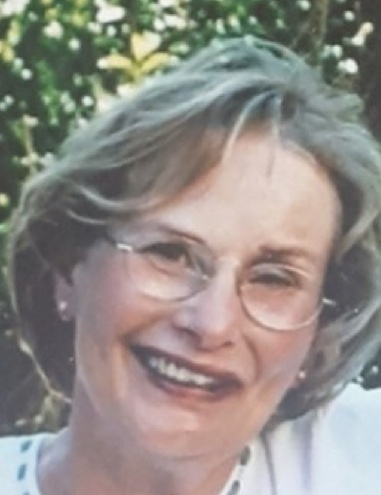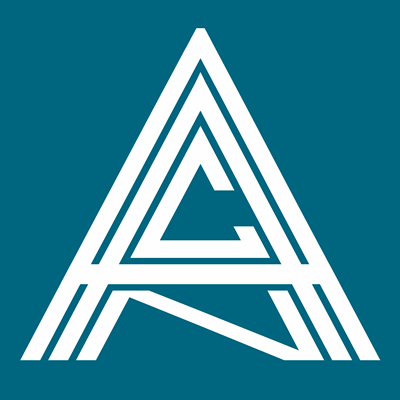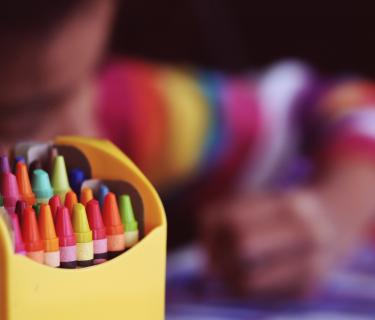
My husband Casey and I were out for an evening walk when I felt a sharp pain in my left ear. The next day I made an appointment with an ENT. He said, “You could have an acoustic neuroma. Come back in six months.” I went into denial. No way! Foolishly, I didn’t go back for more than a year and when I finally got there, he confirmed his earlier suspicion that it was indeed an acoustic neuroma. He referred me to Dr. Griesdale, a neurosurgeon at St. Paul’s Hospital in Vancouver, B.C. (Dr. Griesdale passed away in 2010)
I was thirty-nine years old, stood five feet four inches tall, weighed one hundred and twenty-five pounds, had blonde hair, and hazel eyes. Some people would say my smile was infectious and that my whole face lit up when I smiled. This changed after surgery. Instead, people looked away, or down at the ground, pretending they didn’t see my crooked face. A few asked if I’d had a stroke.
Dr. Griesdale greeted us at the door with a warm handshake and later said he too was thirty-nine years old. I had imagined a neurosurgeon as being old. Instead, his stature was youthful and sturdy, instead of grey or balding hair, it was brown, nicely cropped, and curly. He pointed with a pointer stick to the CT scan that hung on the screen behind his desk. There was a lighter image, in the shape of a golf ball, hovering above the brain. He said, “See it there? What you have is an Acoustic Neuroma. It’s about three and a half centimeters in diameter. It’s growing on the eighth cranial nerve and it touches the seventh nerve.”
He explained there were two options: one was to leave it and let it grow, the other was to surgically remove it, then he quickly added, “YOU have no choice but to opt for the surgery because you have a two-year-old daughter at home. If you let it grow, you could become incapacitated.” He said, “The surgery is lengthy and delicate, anywhere from twelve to twenty- four hours, and because they are so long I only do them on Mondays and Wednesdays. We WILL sever the eighth nerve and as a result, you will lose your hearing in the left ear. There is a fifty percent chance the seventh nerve will be damaged causing permanent facial paralysis.”
I had no comprehension of the loss and change involved in having unilateral hearing and facial paralysis. He neglected to mention possible residual effects of cognitive, vestibular, and left eye damage.
Unshaken and to my later embarrassment, I asked, “Will I have to have my head shaved?”
He said, “yes, your head will have to be shaved, but I’ll do it personally when you are under anesthetic.” I replied, “Thanks, and I’d like to have it done on a Wednesday, just in case you have a weekend party.” How cheeky of me!
Casey and I went down the elevator to the sidewalk, we silently walked to the car. I looked up through the tall buildings to the sky above. I felt like a tiny speck in a very big universe. We said nothing until midway home when I looked over to where he sat in the driver’s seat and with tears in my eyes, I said, “I guess it’s malignant.” I’d never heard the word tumour unless it referred to cancer. The color drained from Casey’s face, his chin quivered as he said, “I don’t think so. I will give Dr. Griesdale a call in the morning and ask.” It was benign.
The night before surgery, I was very nervous. Dr. Griesdale came into my room and sat at the end of my bed. He went over the procedure and reassured me he would shave my head in the morning after I was asleep. I bathed as instructed, and as I lay in bed I reached for the Bible in the bedside stand. I thumbed through the pages until I settled on a verse, Isaiah 40:31 - “They that wait upon the Lord shall renew their strength; they shall mount up with wings as eagles; they shall run, and not be weary; they shall walk, and not faint.”
The next morning a nurse came into my room and said, “It’s time.” She transferred me from my bed onto a stretcher, and wheeled me to the operating room door, and left me there. I lay alone and waiting. I tightly clutched a brown washcloth to my chest like my security blanket. Soon they wheeled the stretcher under bright lights and transferred me onto the operating room table. People dressed in green were scurrying about. Someone said, “You’ll feel a prick as I start the anesthetic.” “Now, start counting from one to one hundred.” I think I got to eleven . . .
My childhood friend Lila came to visit me in intensive care, and as always, the essence of our friendship was laughter. My left eyelid hung wide open and didn’t blink. Without tear production, it was very dry and very painful. I held my hand over my eye. Lila grabbed a damp washcloth and plopped it on my eye. It kept falling off to the side, she wrapped it around my nose saying, “There, now that’s putting that big nose of yours to use.” We laughed.
It was October 7, 1981, I had a fifteen-and-one-half hour surgery. It was autumn, and the leaves were changing color. The landscape was changing and so was I. The lengthy surgery and long recovery left me with significant changes. It had a huge effect on me and my family. My children lost the mother as they knew her. My husband lost the wife he married. It was like a death that none of us were ready for. Grief never occurred because I was still alive.
The transformation pushed me to face the truth of an unhappy marriage. Eleven months after surgery, my twenty-plus-year marriage came to an end. My recovery took two years after which I took up the challenge of going to university and getting myself into the workforce as a pre-school teacher. I’d been an at-home mother for over twenty years. I could have gone back to work in the hospital where I worked before having children. The personnel officer said there was work for me, but I knew my cognitive ability was not what it was before surgery. I chose not to accept her honourable offer.
Now, forty years later I still struggle with the severe dry left eye, and visual memory loss. Frequently forgetting words and where I’ve left things. Keeping a writing pad near at hand, and writing things down helps. Leaving visual markers, here and there, is helpful. Often when I would be madly searching for an item my daughter would giggle and say, “I guess the cat took it.”
When I worked with children, one day a little boy was sitting on my knee, he looked up at me and said, “Why do you wear an ear-ring in that ear when it’s broken?” I immediately took that earring out. The children henceforth came to the side with the earring, the side that in children’s terms, the ear that worked, my hearing ear.
A favorite quote from a favorite person of mine – M.K. Gandhi: “I do not believe India to be helpless...I do not believe myself to be a helpless creature...Strength does not come from physical capacity. It comes from an indomitable will.” Yes, I had an indomitable will.
My eldest son’s wise words to me were, “Mum, your willfulness needs to become willingness”. Thank you, son, thus I learned to let go, let go, and let go of my willfulness, and became willing to accept my limitations along with my strengths.
If I were to offer words of inspiration they would be: Believe in yourself and the universe and keep putting one foot in front of the other even if you wobble when you walk.
If I were to choose a word to share it would be - ‘remember’. Remember our life lessons, remember gratitude, and remember love.
“Life is our teacher. Love is the answer.” R.F.C. © February 2021
Rosaline lives with her P.A.D.S. (Pacific Assistance Dog Society) hearing dog. She believes we connect through story and through story we do not feel alone. In retirement years it seems a natural progression for her to transition into writing. She hopes that writing and sharing her life story, “WALK” will give others encouragement and hope.

